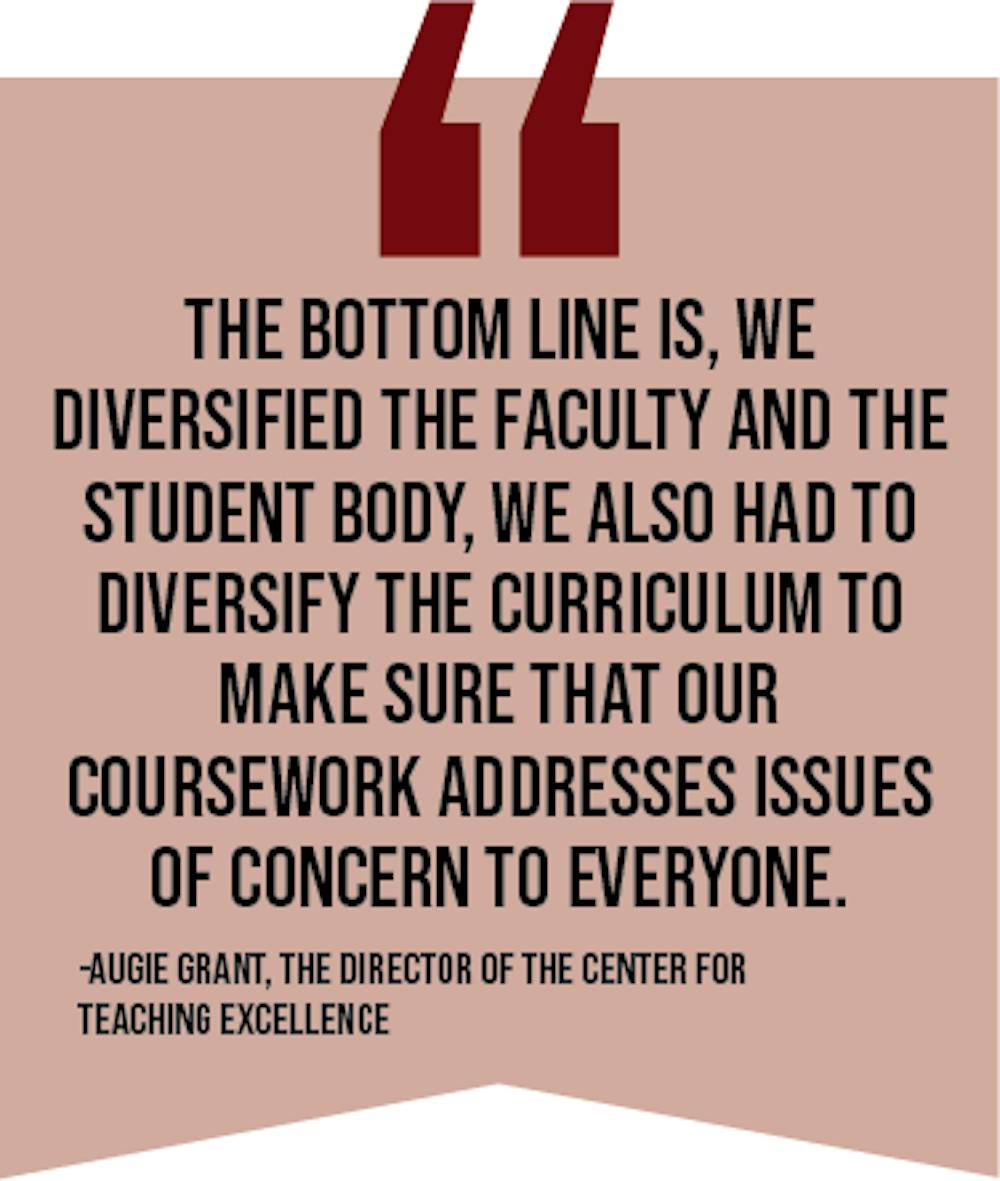The Center for Teaching Excellence (CTE) initiated a call for new course proposals centered around the voices of underrepresented populations by focusing on diversity, equity and inclusion. Approved courses will receive a grant including up to $2,500 and instructional design support.
Courses that receive the Diversity and Inclusive Excellence Curriculum Grant are to be taught in the spring or fall of 2022.
Augie Grant, College of Information and Communications professor and the director of CTE, said CTE’s goal is outlined in its value statement: to inspire excellence and innovation.
“We not only want to have great teachers, but we also want to be trying new things," Grant said.
According to Grant, universities have traditionally focused on the interests specific to their student body and faculty, which at USC was traditionally “a lot of white males.”

“Bottom line is, we diversify the faculty and the student body, we also have diversify the curriculum and make sure that our coursework addresses issues of concern to everyone,” Grant said.
Nate Carnes, a College of Education professor and the associate director of CTE, led the effort to create the grant and incentivize faculty members to diversify courses.
The idea of expanding education to focus on diversity, equity and inclusion “didn’t just start overnight," according to Carnes.
"There has been a commitment to diversity and equity for quite some time," Carnes said. "Particularly, if you look at the Carolinian Creed, there is some verbiage there of what we expect all of our Gamecocks to be, which is embracing.”
Carnes created a team of faculty members to focus on building a "diversity, equity and inclusion toolbox." Carnes said in an email this toolbox is "an online collection of resources from which UofSC instructors and faculty can draw upon to incorporate a variety of best teaching practices."
After receiving money from the provost office, the team crafted the call for course proposals.
Gloria Washington, an instructional designer for CTE, provides teaching support and technology recommendations for grant recipients.
According to Washington, Grant recipients typically attend a grant kickoff where they are matched with an instructional designer to guide them through the course development process.
"This instructional designer and faculty relationship is a collaborative course creation relationship," Washington said. "They bring the content to the table, and I bring the pedagogy to the table, and so with those two combinations, we’re able to create a quality course that enhances student learning."
Washington said she recommends taking between four to six months to develop a course.
The Diversity and Inclusive Excellence Curriculum Grants can be used to create new courses in any department, but Carolina Core courses are preferred.
Carolina Core is the liberal arts component of the university’s curriculum, which Carnes said felt to him like the best place to address this specific topic.
“That's the place in our university curriculum in which we, as instructors and the university, attempt to touch the whole person," Carnes said. "Not just some of the competencies and proficiencies that go into a particular major."
One of the strengths of education in diversity is that students will be exposed to multiple different perspectives, Grant said.
"I see this as being a very practical thing that will make the students better and hopefully make the state better,” Grant said.
The first round of applications was due March 31, and the deadline for the second round of applications is May 15. The application requires a brief overview of the course, a summary of the active learning strategies that will be incorporated and a draft syllabus.
The classes should raise the quality of the education the university offers students, according to Carnes.
“We owe it to our students, we owe it to our faculty, we owe it to our staff to better educate ourselves to what is appropriate," Carnes said.

